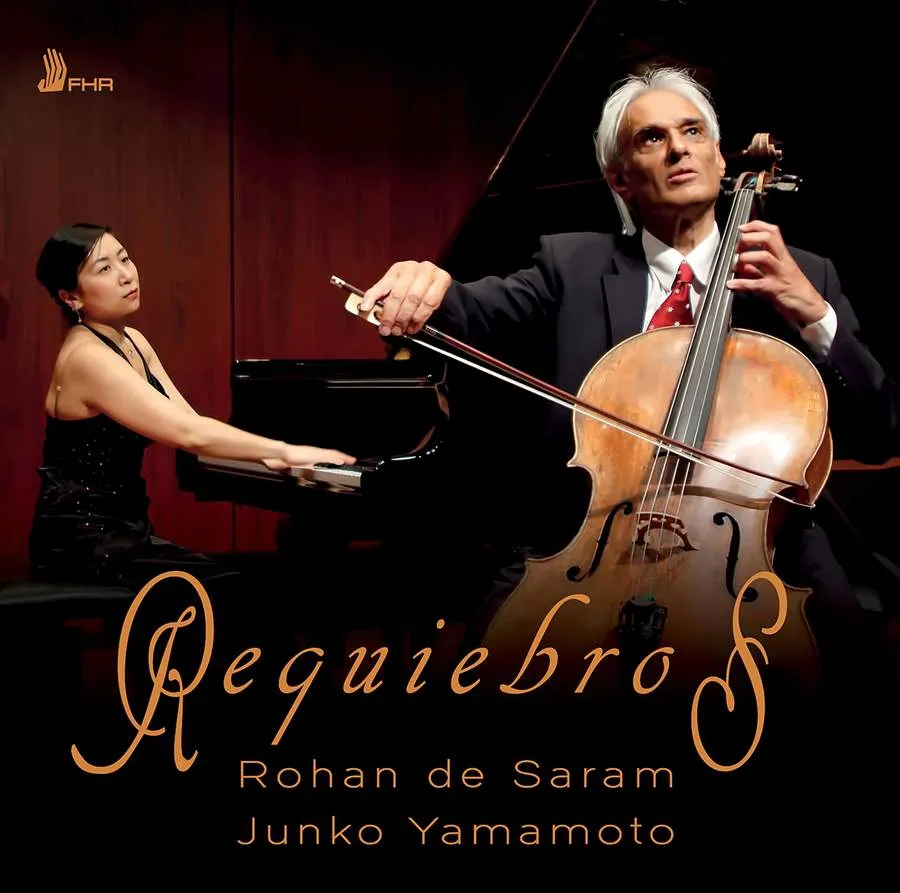
Requiebros Cassado: Requiebros; Granados: Goyescas – Piano Suite; Falla: Suite populaire espasgnole; Frick: Chasse au moment; Ravel: Vocalise-étude en forme de Habanera; Hosokawa: Lied III; Fauré: Songs, Op. 7; Saint-Saëns: Le carnaval des animaux; Allegro appassionato in B minor; R Schumann: 5 Stücke im Volkston, Op. 102 Rohan de Saram (cello), Junko Yamamoto (piano) FHR FHR97 62:09 mins
There can’t be many cellists around who can claim to have studied with the great Gaspar Cassadó, but Rohan de Saram is one. He first met the Catalan composer and virtuoso in his native Sri Lanka in the early ’50s and at 11 went to Siena to study with him.
Cassadó’s robustly Iberian Requiebros is performed in a unique version here, edited by his teacher, as is Granados’s ‘Intermezzo’ from Goyescas, to which Cassadó made 13 changes on De Saram’s copy, not major but distinctive. Both are terrific pieces, to which the duo brings rich character and undeniable authority. But while De Saram has the requisite intensity, what’s lacking here and in Falla’s dreamy Suite populaire espagnole, is sensuality and mystery: it’s all quite hard-edged, as if in the glare of the midday sun. Junko Yamamoto displays fiery command of the ‘Polo’ and ‘Jota’, and the haunting ‘Nana’ and ‘Asturiana’ are sincerely tender, but there’s more magic to be found here. It’s a similar story in Ravel’s Pièce en forme de Habanera and Fauré’s Après un rêve: these transcriptions are woven from such delicate tissue, they need to be released rather than carved out.
The programme moves on to more familiar fare, with Saint-Saëns’s Le cygne and a lively rendition of Schumann’s Funf Stücke im Volkston, but it’s the contemporary works that stand out, reflecting De Saram’s musical life: a syncopated toccata by Olivier Sascha Frick and the glassily exotic Lied III by Toshio Hosokowa. It’s delivered with sombre drama, and is perhaps the most moving track on the disc.
Helen Wallace